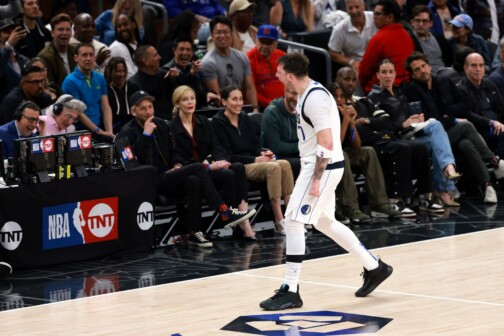Children’s Health System of Texas has become the only pediatric facility in North Texas to be designated by the National Multiple Sclerosis Society as a comprehensive center for MS Care.
The society will present Children’s with the designation as a Partner in MS Care—Comprehensive Center at the hospital on March 23. The disease attacks the central nervous system and can damage connections with the brain, spinal cord, and optic nerves. It can paralyze or blind its victims, and its unpredictability makes it difficult for doctors to catch. Children’s Health has developed a multidisciplinary care team that comes together to determine the best course of care for each individual patient.
The National Multiple Sclerosis Society has now awarded certification to just two programs in the state: Children’s Health, and Texas Children’s in Houston. To become a Partner in MS Care, the facility must have a multi-disciplinary care team; neurologists on staff dedicated to treating MS patients; a complete rehabilitation program, including physical therapists, occupational therapists, and speech/language pathologists; and a mental health regimen, with psychologists and social workers and counselors.
“One of the most rewarding parts of my job is getting to watch these young people really develop and pursue their goals,” says Dr. Lana Harder, the pediatric neuropsychologist on the care team. “We encourage them to let MS be on the sideline. We encourage it, we treat it, but we want them to participate in things and pursue their goals.”
According to the National Institutes of Health, childhood MS accounts for about 10 percent of all cases. The National MS Society says between 8,000 and 10,000 have been diagnosed in the United States, while another 10,000 to 15,000 have experienced a symptom. In other words, it’s rare. Children’s in 2009 opened the Demyelinating Disease Program, which included MS treatment. Since then, the center has seen more than 300 patients with multiple sclerosis or related symptoms. They come from 30 different states. Because MS is so prevalent in adults, Harder says the majority of centers throughout the country haven’t invested the resources in becoming comprehensive.
In Children’s program, patients have access to every specialist they need—many of which are different from what adults with MS need. Harder, for instance, aids in assessing any issues that occur in the child’s learning behavior through standardized testing and then determines if the problem is with memory or attention.
Likewise, there are physical therapists on staff that observe the children’s gait disturbances and motor skills. The child is then followed over time to ensure that their continuous needs are met. Each Friday, all the specialists—neurologists, neuropsychologists, physical therapists, nurses, social workers, educators—coalesce to discuss the patients and their course of treatments.
“I am a better neurologist having my neuropsychologist partner in the clinic with me,” says Dr. Benjamin Greenberg, the pediatric neurologist at Children’s Health.
Children’s Health also recently received funding to expand a research program on access to care. They are researching ways for children to do their neuropsych assessments from the comfort of their own homes via iPad. Too, the hospital has helped invest in a technology that can measure down to a single cell how much damage has occurred to an optic nerve in a non-invasive procedure. It’s also partnered with an immunologist to better understand how inflammatory responses differ between children and adults by the use of blood samples and spinal fluid samples donated by Children’s Health patients
We are trying on the research front, to cover a lot of ground at once,” says Greenberg. “Children’s Health is very much invested in making sure we’re providing good care today but getting smarter for the next patients that are going to enter our doors tomorrow.”
The Food and Drug Administration didn’t approve a medicine to help treat MS until 1993. Since then, treatments have developed from injections to oral dissolves. But the drugs available are still only there to prevent new symptoms. Soon, the doctors will have access to a new medication that is taken by IV just twice per year. In between those doses, no pills or shots will be required. The first line of drugs to repair damage caused by MS are now undergoing trials. And Children’s vows to stay on top of its development for its patients.
“This is a game changer beyond belief,” says Greenberg.




